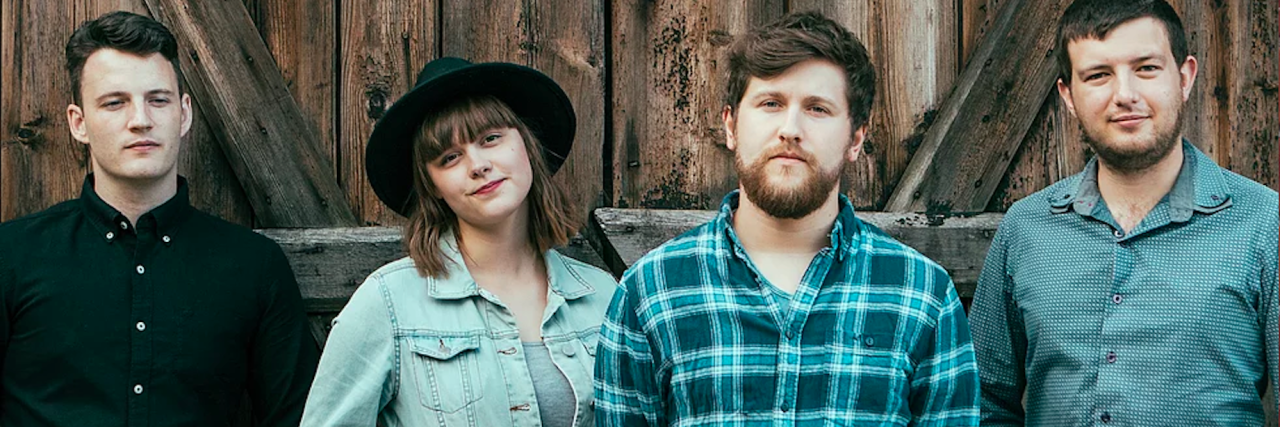When You Work in the Music Industry and Struggle With Mental Illness
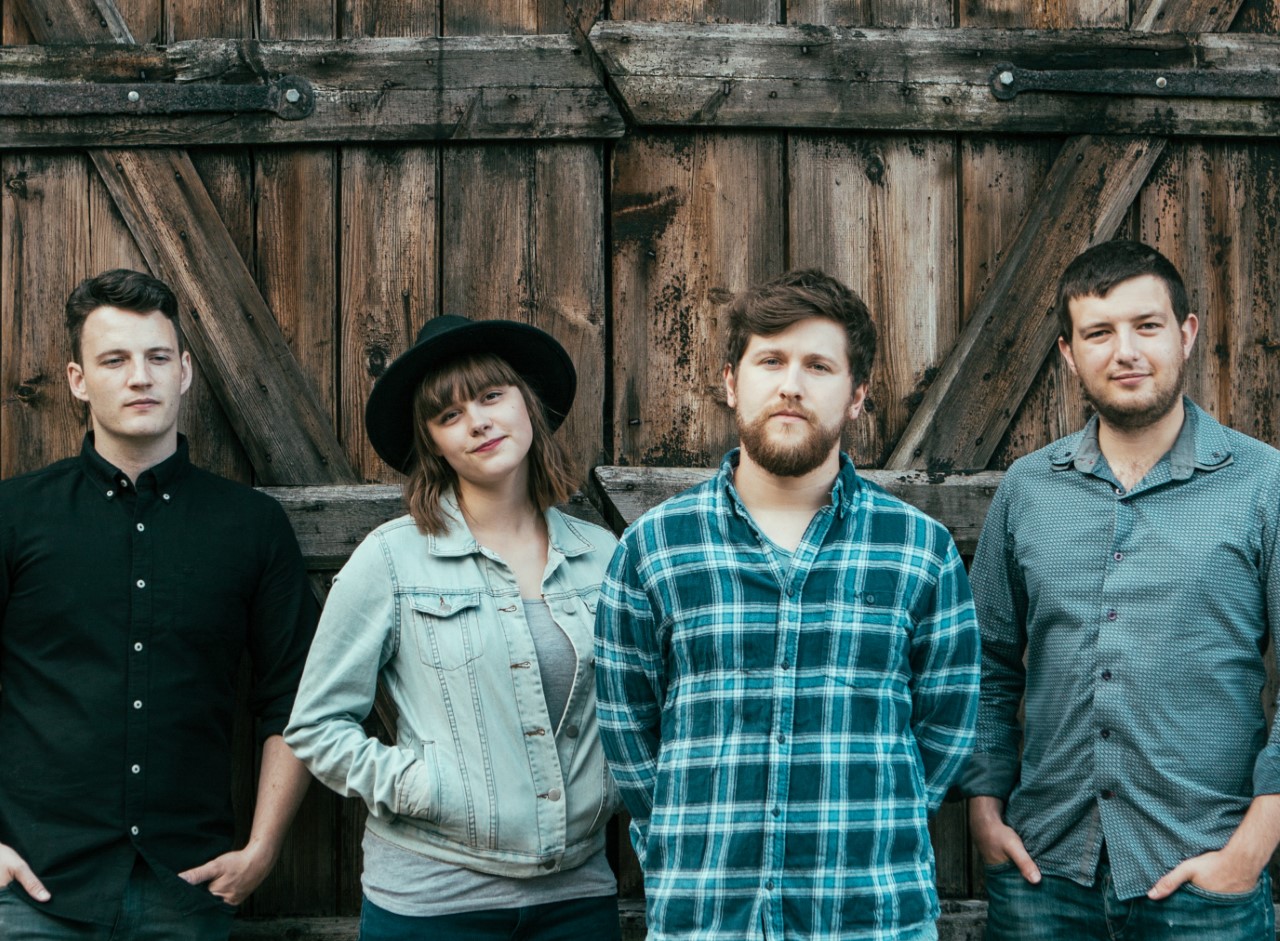
The author’s Americana band Carousel, featuring Chris, Sarah, Thomas and Toby.
I never really thought I was cut out to be an artist in the music industry, or work as a freelancer, and now I’ve suddenly become both. Having struggled with depression and anxiety for a third of my short life, I’ve slowly learned what mental health is all about and how to cope with the lows. But when you work in creative industries, it can often be difficult to keep a hold on your mind.
Since I was young, I always dreamed of performing on stage. I envisioned traveling to the next show on my tour and receiving VIP treatment the whole time. I imagined money, screaming fans, number ones on the charts. As I grew older, these images became less and less realistic. I wrote songs in my bedroom, uploaded cover videos to YouTube and spent most of my free time on social media connecting with fellow young musicians. I started playing small solo shows that my dad managed to arrange for me. My first public performance was a friend’s charity gig in their barn, where I nervously strummed my guitar and sang with as much confidence as I could muster.
When I was 19, I put together a band consisting of my brother on bass guitar, my dad on drums and a friend on electric guitar. I took the front spot to sing to my heart’s content, naively believing that there was some spark there ready to light up, thinking I’d only be a few songwriting sessions away from a breakthrough. How wrong I was. What nobody told me was that I’d have to experience depressed days of laying in bed, being unable to even speak without crying and an inability to look after myself. My mum would bring food and water up throughout the day, offering a listening ear and a shoulder to cry on. It was through this process that I realized not even a hug from my mum would make this go away.
I would go on to struggle a great deal getting myself to a place where I could perform on stage while struggling in a depressive state. I almost had to act like a different person, one who was genuinely happy to stand in front of a crowd smiling. It took me a while to realize that this wasn’t me whatsoever. The black dog has followed me almost everywhere, and whenever I thought I had got rid of it for one short day, it cropped up again and brought me back down to where I believed I belonged.
As I prepare for a life as a freelance writer and a founding member of the Americana band Carousel, I now realize that mental health is so real. It affects every second of my waking life right now, and I am mid-way to accepting that it is likely going to be present in my foreseeable future as a human being.
 Hayley Williams performing live with Paramore at The Royal Albert Hall, London in June 2017.
Hayley Williams performing live with Paramore at The Royal Albert Hall, London in June 2017.
Hayley Williams, front-woman of the rock band Paramore, has recently opened up about her mental illness, saying, “For the first time in my life, there wasn’t a pinhole of light at the end of the tunnel…It wasn’t in the sense of, I’m going to take my life. It was just hopelessness. Like, ‘What’s the point?’ I don’t think I understood how dangerous hopelessness is. Everything hurts.”
That’s the problem I think. Societies and cultures today are so focused on honing in on the bad and the ugly. People using social media unconsciously squash all honesty and strive to show the best of their lives, when most likely, it’s is not like that behind the scenes.
Williams, who in 2015 decided to take a break from Paramore, went on to say, “I just was done…I thought, ‘There’s gotta be something else that I’m good at in my life. Maybe it’s time for me to go find that.’”
I have decided to interview a few close friends and acquaintances who are all artists or work as creative freelancers. The idea of this is to help me explain the correlation between creative industries and mental health, and to help younger creatives cope with learning about their mental health challenges.
I asked my interviewees: “How is life different working as a creative freelancer compared to working a ‘normal’ job?”
Irish singer-songwriter Brian O’Reilly, professionally known as Bry, said, “I’m a trained teacher, but I can’t do ‘normal’ jobs anymore — it makes me suicidal. I can only be self-employed now.”
Music producer and audio engineer Peter Waterman answered, “The biggest difference is the routine. I would say a full-time job, even when you start with good intentions, becomes repetitive and therefore you become lazy and do the minimum. When you’re a freelancer in a creative industry, you work and think about work from the moment you open your eyes in the morning at home until you lay in the same bed again at night.”
Freddie Webber, who has been writing and performing his own songs since he was 15, replied, “The main difference is discipline. When you are your own boss, especially when it comes to being creative, it’s very easy to be like ‘ah, I’m not feeling it today.’ You don’t have to answer to anyone else, which can be counter productive.”
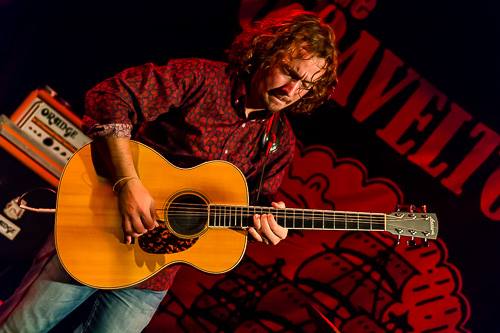
Freddie Webber
I then asked: “Do you find it difficult to motivate yourself, and what’s the drive behind your motivation?”
A close friend of mine, Chris Asher, immerses himself in music, painting and writing. He responded, “The only real drive behind anything I do creatively are the words of encouragement from those closest to me. Their words help me rationalize and remind me of the passion and creativity I cautiously hide away. They are helpful reminders to be free and the only person I can be — me.”
Megan Jane Tredwell, a young local singer who has struggled with depression for 9 years said, “Some days are easier than others. It’s hard when you have a voice inside your head telling you that you can’t do anything or achieve anything. Some days I have to really force myself to get up and do things that take me out of that dark place.”
Chris Robson, a design engineer by day and singer/songwriter by night replied, “My main motivation comes from booking myself into gigs so that I can use them as goals; this eventually forces me to practice. If I can get a few good gigs in succession, then the buzz I get from them usually lasts long enough to keep me moving forward, so they are a source of motivation.”
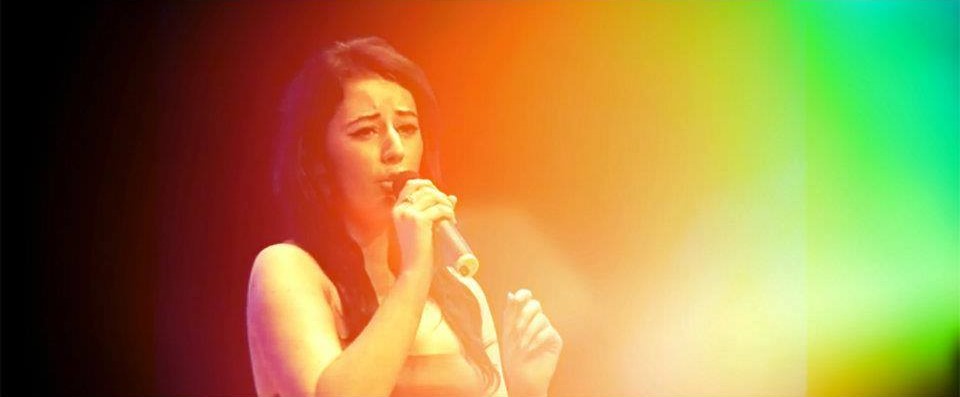
Megan Jane
My next question was: “Is there a correlation between creative industries and mental health?” The answer seemed fairly straightforward to me, but I was eager to find out what my peers and fellow creatives thought.
An anonymous musician writes, “I think there is a correlation, albeit a weak correlation. I know lots of creative people who don’t have mental health issues, and I also know mentally ill people who are not creative. I think part of being creative is opening up the floodgates to all different emotions and running with them. It’s listening to all the wild and crazy thoughts you have and writing them down, putting them on a canvas, or expressing them through music. A more rational-minded person may not have such irrational ideas to portray.”
Peter Waterman added, “I feel like it’s very personal and I don’t think it’s as easy as generalizing creative industries with health problems, but I do think you can become more susceptible to particular mental health issues when your freelance career isn’t hitting it off. We all start from the bottom as a creative freelancer, even if we have had success previously in some sort of format.”

Music producer Peter Waterman
I also spoke to another anonymous creative, who works as a photography coordinator for a fashion brand. They said, “A lot of people I have met that struggle with mental illness do tend to be more creative. I think the creative mind tends to have to be more sensitive and in tune with emotions in order to be able to draw on these to create. However, this can be detrimental because it also means that we take it to heart if our ideas are rejected or we face criticism. The creative industries are based on people’s opinions and everyone thinks differently, so although someone might like your idea or concept, there will always be people who don’t. This can be hard to take when you’re already struggling with low self-esteem, depression or anxiety.”
The inspiring Jessica Noah Morgan, a journalist, writer and singer responded, “It’s scientifically proven that people who are likely to struggle with mental health problems are highly creative people. I think it’s the way our brains work — by work I mean overwork. We have all these bright ideas and we work at a million miles an hour to get things done. A lot of the greatest creatives, writers, musicians and scientists all struggled terribly with mental health conditions, but produced the most brilliant pieces of work this world has ever seen. Stephen Fry, Albert Einstein, Mozart, Winston Churchill, Sylvia Plath, the list goes on.”
Next, I asked, “Has your creative role affected your mental health, and if so, how?”
Chris Asher said, “Yes. Because of the way that my creativity and mental health correlate so heavily, it means that when I put my all into whatever I am doing; such as a written piece for my blog or lyrics for a song, I am rewinding time and reliving old thoughts and feelings I may have had in the past. These thoughts affect me a lot of the time the same way they did before and it makes any creative progress almost impossible.”
Anonymous replied, “I think that my creative role has given me a healthy outlet for the emotions my mental health brings. If something used to deeply upset or anger me in the past, I would often end up self-harming. Now I will pick up an instrument and get my emotions out a much safer way.”
And lastly, “Has your mental health affected your creative role, and if so, how?”
Bry answered, “When I’m recording in the studio it does. I have habits that kill me in the studio and it makes me not want to record.” He went on to tell me how he got into a repetitive habit of shaking his head, a kind of twitch, for the six weeks that he was recording his album.
Chris Robson said, “As a performer, my depression has affected my motivation hugely. It also affected my self-esteem; no matter how good the gig is, I will always find a very creative way of twisting my emotions to find a reason why it was not good enough. I am often of the mind that stopping performing might actually be much better for me mentally than constantly challenging myself, but so far the creative drive always wins.”

Chris Robson
Peter Waterman said, “As a music producer, I’m always fighting against other people’s doubt and their subconscious telling them they can’t do it. Self-doubt isn’t just stopping people from giving their all in a studio/live environment as an artist or musician. It can stop people from even trying or walking away and never attempting to come back.” Having worked alongside Peter for Carousel’s debut EP, I feel as though he has an incredible ability to figure people out and has, at times, been the main source of encouragement to keep me going during our studio time. “My mental health has never helped my creative role and only ever inhibited it. If my subconscious stopped doubting my ability then it would be easier.”
Anonymous added, “With poor mental health, a person is likely to dwell on situations, meaning that they’ve probably already thought of all the worst possible outcomes and come up with solutions for them before it’s even happened. This is very useful when you’re your own boss, although it does sometimes mean you’ve worried a lot for nothing, but you are prepared for the worst!”
Freddie Webber responded, “I look at it like this: My creative role is the owner and my mental health is a dog. My creative role’s job is to take the dog out on frequent long, adventurous walks, to both please and tire out the dog. If it isn’t taken out, then that’s when there can be issues.”
I also managed to ask singer/songwriter Bry if he had any advice for young people who aspire to be in a creative industry. He said, “That it doesn’t cure you. I feel you have to keep yourself busy. However, a friend of mine hates touring and gets really miserable on tour. She shares it on Instagram though,” which, to me, is how we should all be approaching social media. Honest representations of our lives online are few and far between.
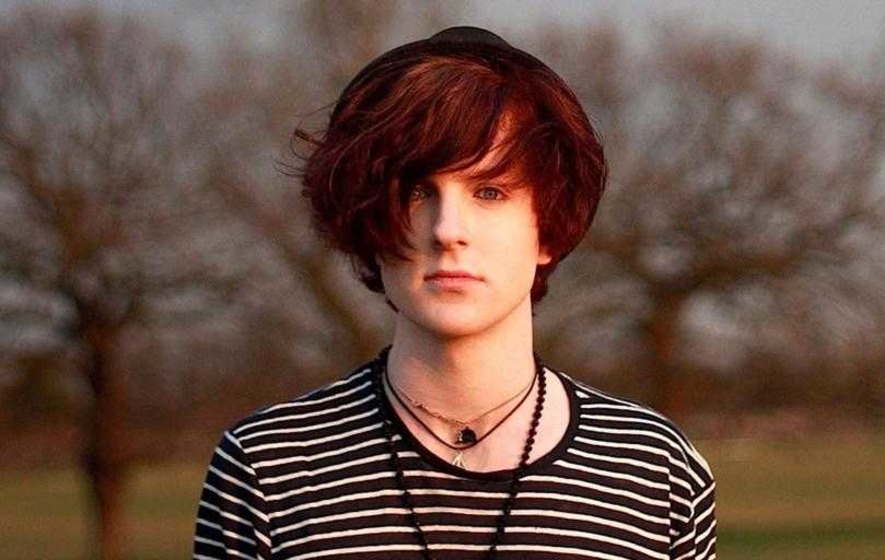
Irish singer-songwriter Bry
I believe that those who struggle with mental illness can gain many benefits from working in a creative industry such as music, however, it does have its drawbacks. Self-employment has allowed me to be completely flexible with my work schedule, yet I’ve had to be tougher on myself to find motivation and set goals. I am still not completely at ease with a freelance lifestyle because I know money will always be tight and I will have to continue dragging myself out of bed when I’d rather just stay curled up.
My advice to creatives who aspire to be a part of the industry would be to just keep on going. Know that any low moments won’t last. You won’t feel this way forever and tomorrow is a new day.
Jessica Noah Morgan said, “I truly appreciate the journey I’ve taken to get to where I am and I highly recommend those who are looking to take the plunge into a freelance world to do so immediately — you won’t regret it. Life is made for creativity and big ideas.”
One of our aims in my band, Carousel, is to reach out to people through lyrics and songs. A few of our songs have been based around mental health themes. Here’s Carousel’s singer and guitarist Thomas Eatherton talking about the creation of the song “Comfortable Skin:”
“It is just about the most raw and honest song that I think we could have mustered up. The fact that it seemingly fell from the sky — written in one sitting, with no revisions to the lyrics or melody — only adds to how proud we are of this song and its profound meaning to us as people. The subject found here in the lyrics is mental health. During the past couple of years, this has been cast to the forefront of our personal lives without our consent, much as it has for many other people we know. Huge stigma follows mental health and this prevents people from reaching out and asking for help. This song is written as a plea to those who struggle to speak out, talk to someone who cares, to have hope and realize that they are not alone.”
You can now hear “Comfortable Skin” on Spotify. Find out more about the band Carousel here.
Image via Carousel website

